QuestionQUESTION: My 7 year old rabbit, Pearl, has been having GI stasis off and on for over 6
months. Her last bout was the worst - she didn't produce a stool for 4 days
though she was on Reglan, Cisapride, SQ fluids, and Metacam. Her former
doctor, rabbit savvy Carolynn Harvey (who has since left her practice in my
town) has X-rayed and palpitated her and run all relevant lab tests and
determined that whatever is causing the stasis can probably only be
determined through exploratory surgery and the likelihood of Pearl surviving
surgery is slim.
This time, when I brought Pearl back to the vet on her 4th day of blockage, I
held her up to show the doctor her swollen urethra when suddenly copious
amounts of white foamy stuff came shooting out of her rectum, along with a
large stool covered in yellowish mucous. I left her at the vet, again, for
observation and when I called to get a status report was told she was doing
fine and eating and pooping like crazy.
She is now on Baytril for yet another UTI (I think she's had 4 of these since last
July.) I've been giving her Reglan BID, but am holding off on the Cisapride.
Today I find out that she came up positive for E. cuniculi. The vet wants to
put her on another medication to treat this, but I would rather wait until I can
get her UTI under control. She hasn't been blocked for a whole week. We ran
the E. cuniculi test because I reported she tips over sometimes and seems to
have a little trouble getting up when she lies stretched out.
My rabbit is very sweet and she tolerates taking all these medications very
well but I worry that I'm giving her too much. She has been on just about
everything recently, including Chinese herbs. When she is eating and
pooping, she seems very content but when she's blocked, she's pitiful. Could
you please offer some advice? Thanks!! polly
ANSWER: Dear Polly,
I have what might seem an odd question (well, pair of questions) that might help us get to the bottom of this. Maybe.
1. What color is Polly?
2. Are her fecal pellets normally-shaped, like cocoa puffs, or do they tend to be larger than normal when she's producing them?
Looking forward to your answers.
Dana
---------- FOLLOW-UP ----------
QUESTION: She's white with black spots. Her pellets have always been small and oval-
shaped, and are sometimes very, very dry. My all-white male rabbit produces
much larger round pellets, much like a cocoa puff, and the difference is
remarkable, though they are on the same diet.
I also forgot to mention that she had an X-ray during her last blockage and
the doctor reported her hips look great but there was alot of gas in her gut.
Thanks for your interest! polly
AnswerDear Polly,
Well, her color fits the description of a bunny who could have "cow poop syndrome," but if she had this (which some vets call "megacolon," though I do not think that's an accurate name) her poops would be unusually large and "marshmallowy".
If they are small and dry, though, she could be having chronic problems with hydration of her intestinal contents. When we had a bunny with true, chronic lower GI blockages (she had three surgeries to remove impacted poops!), we found that daily administration of lactulose *really* helped prevent problems. Unfortunately, we didn't learn this until her intestine had been badly scarred by her huge, dry "cowpoops" and she had lots of narrowed areas in the gut that remained problematic. But now when we have a bunny with "cowpoop" syndrome or chronic blockage-suspicion, we give lactulose periodically.
Lactulose is an indigestible sugar that works as an osmotic laxative to draw liquid into the gut, hydrating the got contents. This softens the poops and makes them easier to pass. Oral hydration and subQ fluids are also recommended to make sure bun doesn't hydrate her intestines at the expense of the rest of her body.
If she has motility problems, then lactulose, subQ fluids and intestinal motility drugs (cisapride; metoclopramide) together might help. You could run these by your vet and see what she thinks. But I think the lactulose would certainly be worth a shot. It has really worked well for us!
Hope this helps.
Dana

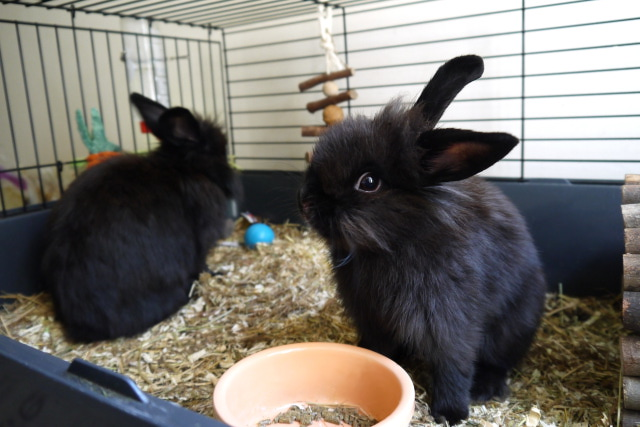 My bunny died under anaesthetic :(
QuestionMy Tilt
QUESTION: Hello,
I am so sad in
My bunny died under anaesthetic :(
QuestionMy Tilt
QUESTION: Hello,
I am so sad in
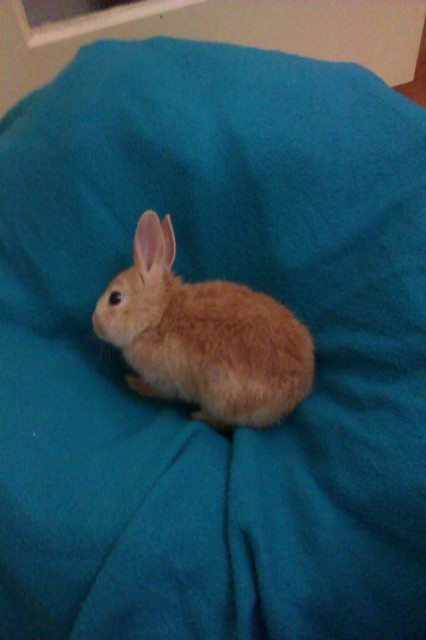 !URGENT! How do I dispose of Stillborns/Deformed Kits?
QuestionQUESTION: Hi Dana,
&nb
!URGENT! How do I dispose of Stillborns/Deformed Kits?
QuestionQUESTION: Hi Dana,
&nb
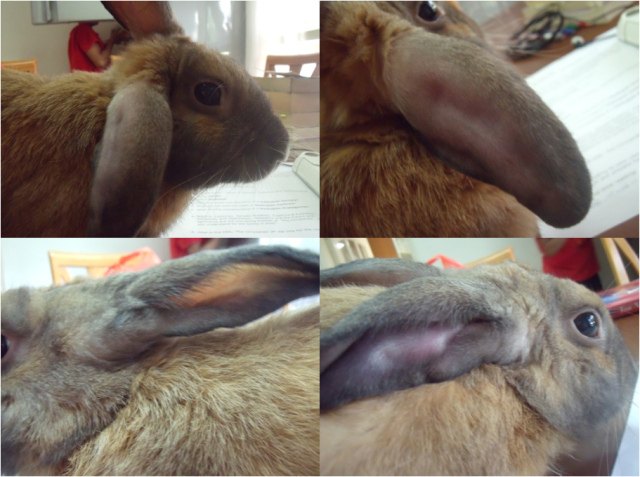 Swelling in Ear of Adult Rabbit
Question
Rabbits Swollen Ear
I adopted my rabbit
Swelling in Ear of Adult Rabbit
Question
Rabbits Swollen Ear
I adopted my rabbit
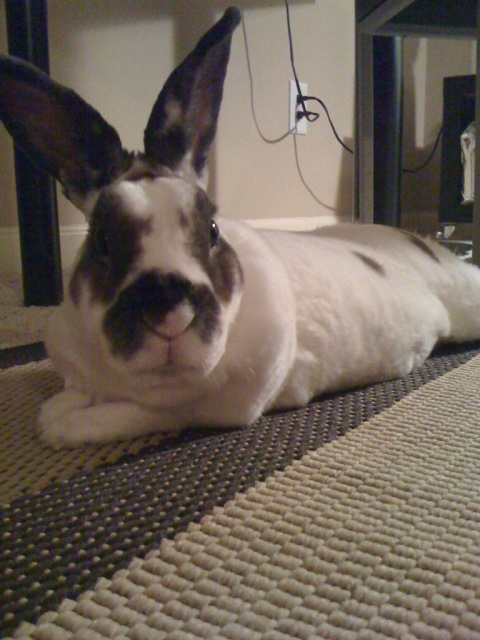 excessive drool and teeth are fine
Question
bunbun
I have a mini rex approx. 5yrs.
excessive drool and teeth are fine
Question
bunbun
I have a mini rex approx. 5yrs.
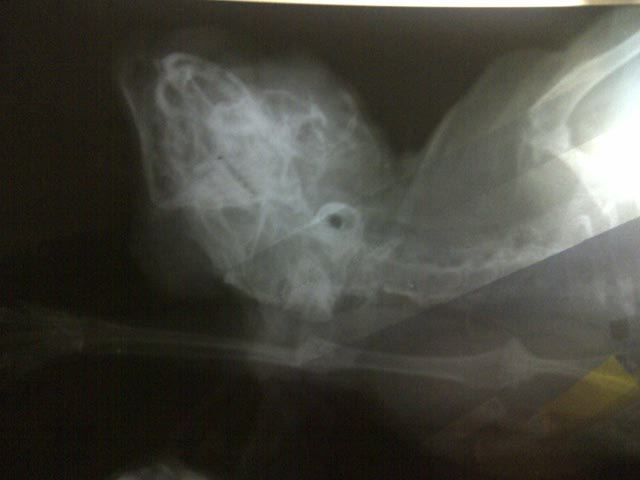 swell in cheek n chin bunny
Question
xray of bonnie cheek xray
Dear da
swell in cheek n chin bunny
Question
xray of bonnie cheek xray
Dear da